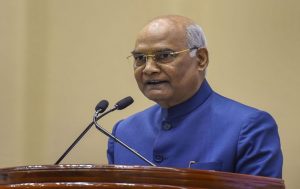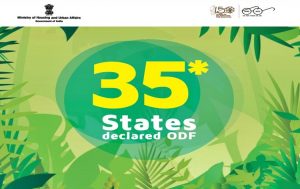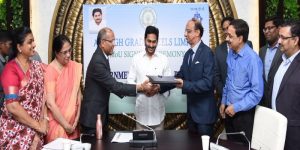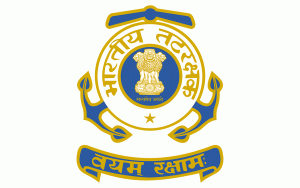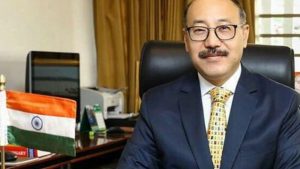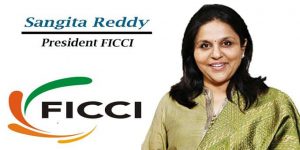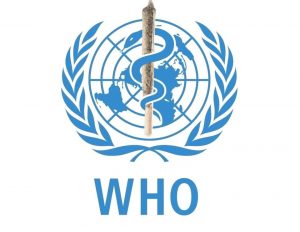VisionIAS
19:33

📰 Safeguarding constitutional morality
The post-poll developments in Maharashtra and the hastily passed CAA have been in conflict with constitutional values
•On the occasion of Constitution Day, at a joint sitting of Parliament to mark the 70th anniversary of the adoption of the Constitution, President Ram Nath Kovind, (quoting B.R.Ambedkar) made a significant observation that all three organs of the state, persons occupying constitutional posts, civil society members, and citizens should abide by ‘constitutional morality’.
•The reiteration by the President of an essential truth came not a moment too soon. Concerns are increasingly being voiced by different segments of people regarding violations of the Constitution by those in authority.
•Concerns about the future of democracy and democratic traditions are, no doubt, growing across the world. In quite a few democracies, moreover, one can also perceive a decrease in democratic freedoms and a trend in favour of illiberal populism. India was hitherto perceived to be an exception to this, being protected by safeguards found in its Constitution — the product of a Constituent Assembly that consisted of not only the best legal minds, but also of compassionate individuals who espoused the finest human values.
Article 370, and after
•Recent developments in India, however, seem to ‘singe’, without as yet undermining, the basic structure and principles of the Constitution. Steps need to be taken expeditiously to prevent any further slide. For instance, much has been made of the fact of diluting Article 370, that it was a temporary provision. The reality is that it was, nevertheless, a provision made in the Constitution for a specific purpose, which clearly required more detailed and careful treatment before being peremptorily invalidated. Even if the end justified the means, the haste was unwarranted.
•Again, while the Indian Constitution provides for a federal system with a unitary bias, the Central and State Governments both derive their authority from the Constitution. This implies that States are not exactly subordinate to the Centre. Splitting Jammu and Kashmir (J&K) into two Union Territories, without due consultation with different segments and shades of opinion there, including its political leadership, ran contrary to this essential principle. It violated the spirit, if not the letter, of the Constitution.
•Furthermore, while secularism is becoming an ugly word today in many parts of the globe, we in India were free of any such bias. Lately, it would seem, that some of these biases are beginning to emerge in many circles in India as well, undermining our long held secular precepts. In its seminal judgment in the Kesavananda Bharati v. State of Kerala case (1973), the Supreme Court held that secularism is part of the basic structure of the Constitution and cannot be trifled with in the name of security or other considerations.
•These are all portents of danger, and call for a great deal of introspection. They merit a calibrated response. Unfortunately, this does not seem to be happening. Those in authority would do well to heed the warning given by former President Pranab Mukherjee while delivering the second Atal Bihari Vajpayee Memorial Lecture that “A numerical majority in elections gives you the right to make a stable government. The lack of popular majority forbids you from a majoritarian government. That is the message and essence of our parliamentary democracy”.
Drama in Maharashtra
•Constitutional capers are aggravating this situation. The unfortunate drama enacted after the Maharashtra State Assembly results were announced could have been avoided if constitutional proprieties were adhered to. A pre-election alliance of the BJP-Shiv Sena had secured a majority, but the inability of the two allies to resolve issues relating to sharing of power led to a breakdown. President’s rule had to be invoked. Later, after a compromise was reached between the Shiv Sena, the Nationalist Congress Party (NCP) and the Congress to form a government, the President’s rule was revoked in a midnight charade using the Prime Minister’s ‘special powers’, and a BJP-led government was sworn in. The State also witnessed unseemly incidents such as sequestering of MLAs who were taken to safe havens to avoid poaching in the event of a trial of strength in the Assembly. That the attempt to impose a BJP-led government did not succeed is less important than the fact that provisions of the Constitution and the position of constitutional functionaries had been compromised.
•A still more expedient experiment, which conflicts with some of the basic precepts contained in the Constitution, has been the passage of the Citizenship (Amendment) Act (CAA). On the face of it, the CAA only makes it easier for refugees from countries such as Afghanistan, Bangladesh and Pakistan to gain Indian citizenship. The fine point, however, is that it excludes certain categories, such as Muslims. This denies people belonging to one particular religion recourse to the new law.
•While the CAA implicitly violates India’s liberal traditions, when combined with the move to compile a National Register of Citizens, it carries an ominous ring. Many experts had apparently warned that the proposals were in violation of the Constitution, but these warnings were not heeded. That the Citizenship (Amendment) Bill passed through both the Houses without any detailed debate or discussion thereafter is, hence, unfortunate, giving an impression that a majority in Parliament is adequate to push through Acts which may or may not be in tune with the Constitution.
A study was needed
•Whatever be the merits or demerits of the CAA, given India’s many-layered democracy and the existence of different religious communities spread across different regions of the country, a more detailed and in-depth study was called for before pushing through such a key measure. Granting citizenship may be the sole discretion of the Centre, with the States having no role. Yet, this could still be unconstitutional if it violates Articles 8 and 14 of the Constitution.
•The violence in varying degrees of intensity that has erupted across the nation is a testimony to the divisive nature of this latest piece of legislation. The issue of refugees from neighbouring countries has been pending for long. No satisfactory outcomes were readily forthcoming. Given that the Constitution has been the guarantor of equal treatment to people of all religions and regions, and irrespective of geography and history, the issue of refugees called for not only greater understanding, but also more time, so that the fundamental principles of the Constitution were not violated. While piloting the Bill, the Home Minister had mentioned that “if the Congress had not divided this country on the basis of religion, there would have been no need to bring in this Bill”. This is hardly a valid argument. On the other hand, it raises more questions as to what were the real reasons behind the enactment of the Act.
•What is also not understood is the haste with which the Bill was pushed through Parliament. India has been grappling with several more critical issues in recent months, including the state of its economy. To raise this matter at this time seemed uncalled for. At this juncture, it may be worthwhile to quote Winston Churchill ‘the price of greatness is responsibility’. Is India acting responsibly?


